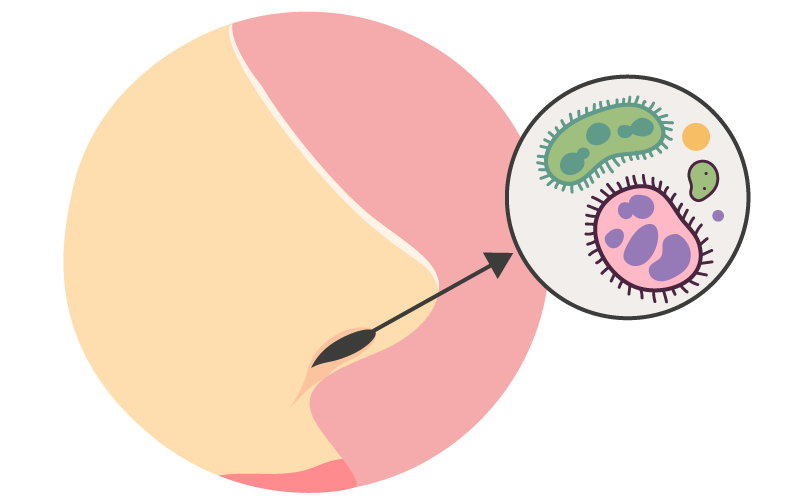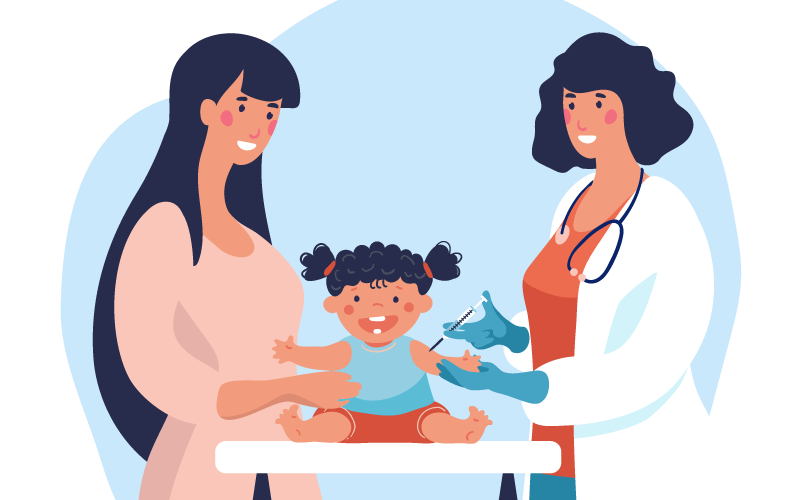Haemophilus influenzae type b (Hib)
What is Haemophilus influenzae type b (Hib)?
Haemophilus influenzae type b (Hib) is a bacterium that can cause an infection with potentially serious and even life-threatening complications. The infection can also cause lifelong impairments such as hearing loss and learning disabilities. It is most common among children under 5 years old with two thirds of cases occurring in children under 12 months.
What are the symptoms of Hib infection?
At a glance: HiB in Europe
- A Disease that can affect different parts of the body caused by bacteria
- HiB can spread through the air
- Around 3000 cases every year
- HiB can cause serious complications such as meningitis, sepsis or epiglottitis.
- Young children and infants are most at risk
- Vaccination can prevent Hib infections and the serious complications they can cause.

- Fever
- Extreme fatigue, being hard to wake
- Headache
- Sore throat
- Trouble breathing
- Stiff neck
- Vomiting
- Painful or swollen joints
- A rash that does not disappear when pressed
- Pale, blue, grey or blotchy skin, lips or tongue
- Dark skin around the fingernails or eyes

What are the complications of Hib infection?
Hib infections can be serious and cause life-threatening complications. Complications vary depending on the location of the infection in the body but are usually related to swelling and tissue damage. Complications can include:
- Meningitis (inflammation of the membrane that surrounds the brain and spinal cord)
- Sepsis (serious blood infection/poisoning)
- Epiglottitis (inflammation of the epiglottis, the flap that prevents food from entering the windpipe)
- Pneumonia (infection and inflammation of the lungs)
- Septic arthritis (infection and inflammation of the joints)
- Purulent pericarditis (a life-threatening infection of the sac that surrounds the heart)
- Endocarditis (inflammation of the inner membrane of the heart)
How is Hib spread?
The Hib bacteria can live in a person's nose and throat but do not usually cause disease. If they move to another part of the body, the resulting infection can be very serious. If a person is unwell with a Hib infection, it can spread to other people through respiratory droplets.

Who is at risk of Hib infection?
Anyone can develop a Hib infection at any age. However, those most at risk of infection and severe disease are children under five years old, the elderly, and people with weakened immune systems.
How can Hib infections be prevented?
Vaccination is the most effective means of preventing Hib infections. The Hib vaccine is part of the childhood vaccination schedule in all EU/EEA countries. Widespread vaccination has led to a dramatic decline in the number of cases of Hib infections, since its introduction in the 1980s.
Good hygiene and avoiding contact with people who are unwell can help protect against Hib infections.
How is a Hib infection treated?
Treatment for a Hib infection generally includes antibiotics to treat the infection. The need for other treatments depends on where the infection is in the body and the complications it has caused.
Family members of people with a Hib infection and other close contacts may also receive antibiotics as a precaution.
